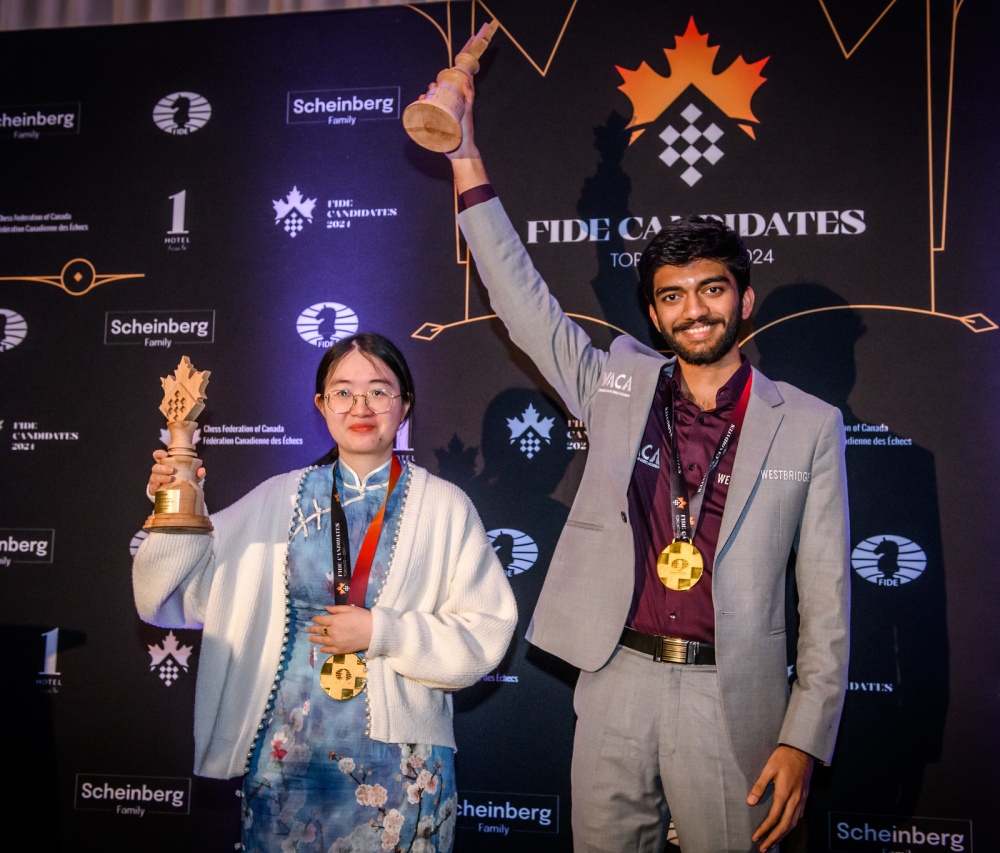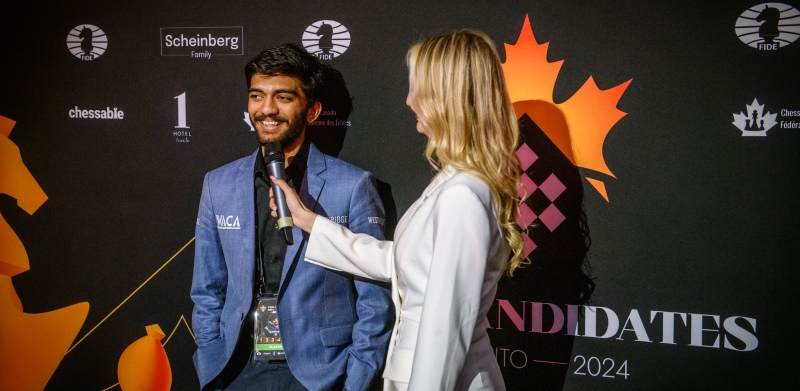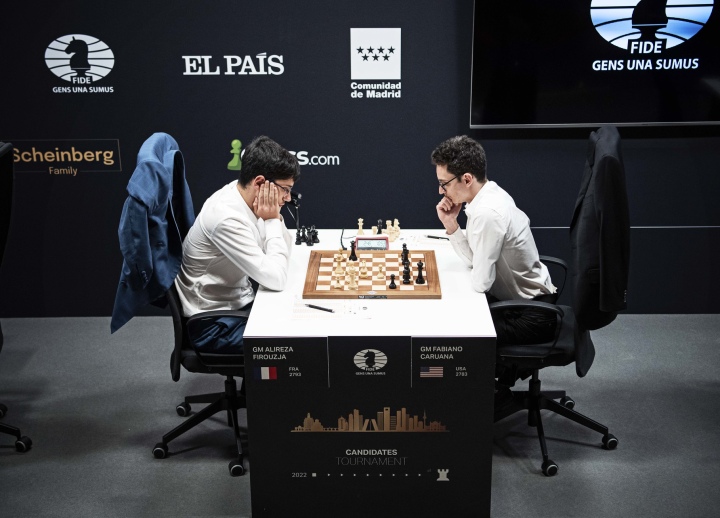
In a repeat of day one of the Candidates, Ian Nepomniachtchi and Fabiano Caruana are the only two players to score a victory, separating themselves from the rest
After six rounds of play, Ian Nepomniachtchi (who leads in the tournament with 4.5 points) and Fabiano Caruana (who is just half a point behind) have distinguished themselves as early contenders for the next challenger for the title of world champion. They are followed by Hikaru Nakamura and Richard Rapport, who have three points. After his defeat in today's round, Jan-Krzysztof Duda has joined Teimour Radjabov and Ding Liren on 2.5, while Alireza Firouzja is alone at the bottom, on two points.
The last round before the rest day in the 2022 Candidates saw two draws and two victories. It was a repeat of day one when Nepomniachtchi and Caruana were the only players to win their games. The spectators were presented with a treat from the Palacio de Santona in Madrid, as neither of today's games was easy or quick.
Tournament leader Ian Nepomniachtchi got a convincing victory against Jan-Krzysztof Duda. The 24-year-old from Poland drew all his games until this round but probably deserved more as he had shown greater talent than some of his opponents so far. However, in the game against Nepomniachtchi, he was on the back foot from the beginning. In the Reti opening, White developed quickly and launched a pawn advance on the black king's fortress, forcing Duda to give up a bishop for three pawns and a weaker position, which was followed by an execution of a sharp and devastating attack. Despite the defeat, Duda has shown great vigour and resilience in the tournament, and it would be a shame if he didn't keep it up.

In the other decisive game of the round, Fabiano Caruana scored comfortably as Black against Alireza Firouzja. Following a relatively stable position in the Catalan opening, Firouzja sacrificed an exchange hoping to regain it immediately but missed a strong in-between move by Caruana, and his 'temporary' sacrifice turned into a permanent one. From that move onwards, Fabiano played in an exemplary fashion. With every move in which Firouzja was trying to get a chance to light a spark, Caruana responded by pouring cold water on him, to the point where the Frenchman realised his flame was finally out and that he had to resign.
Caruana and Firouzja are now in two different worlds: the American is at the top of the scoreboard, half a point behind the leader, while the Frenchman is at rock bottom, on two points, alone in - many would argue - a demise of his own making. Caruana's approach seems to revolve around the principle: keep calm and carry on. While a big challenge lies ahead for Firouzja: if he can pick himself up and dust himself off, he will show that his star is destined to ascend.
Teimour Radjabov missed a great chance today to score his first victory. The opponents were on par in wild Sicilian complications and ended up in a roughly equal position where Radjabov had sufficient compensation for two pawns. Rapport apparently underestimated the potential danger and greedily went for a pawn but ended up in a lost position where White's active rooks and a bishop dominated the board. However, facing time trouble, Radjabov let his advantage slip and immediately entered a drawn endgame.
It's a big miss for Radjabov, who wasted his best opportunity in the tournament so far. He is yet to claim his first victory in a classical game since 2019! Rapport – on the other hand – had another lucky escape in the Candidates (the first one was in the third round, against Ding). While Radjabov is aware that chances like the one he had don't present themselves often, Rapport surely knows that luck runs out at some point for everyone, and nobody knows when. Betting on / hoping for it isn't the best option for the next rounds.

In his second game in a row with black pieces, Ding Liren drew with Hikaru Nakamura. In the Italian game, both demonstrated his excellent home preparation. After breaking through in the centre, Black got some chances, but those were not enough to unsettle Nakamura. When it seemed that Ding was getting the upper hand, Nakamura went for Black's king and forced a draw by perpetual.
Nakamura is still in a good position to make a breakthrough at the top, but Ding is still lingering near the bottom of the scoresheet and is yet to secure his first victory.
The six rounds of the Candidates played so far saw six decisive games and 18 draws. Of those six victories, Nepomniachtchi owns three and Caruana two, while the remaining one goes to Nakamura. By right and by might, the two are now seen as the most likely candidates for the first place. But with eight more games ahead, a lot can change.
Friday is the second rest day for the players, after which there will be another sequence of three rounds which might prove decisive for the tournament.
Here follows a closer look at the games from Round 6 of the Candidates.
Teimour Radjabov vs Richard Rapport: A wasted opportunity
Rapport played the same opening he used the day before against Caruana – the Taimanov variation of the Sicilian. Similar to Caruana, Radjabov opted for a double-edged line. In today's game, the two opponents went down an unusual and sharp path beaten by Maxime Vachier-Lagrave and Ian Nepomniachtchi back in 2021.
Both sides immediately went for an attack instead of gradually building their position, and both kings didn't castle and moved after check.
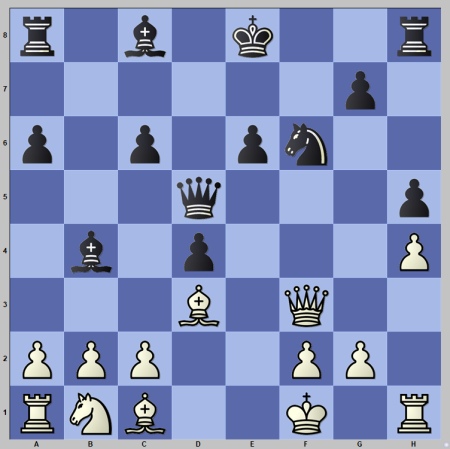
On the move 16, Radjabov introduced a novelty with 16.Bg6+, which did not change the evaluation of the position as slightly better for White. Six moves down the road, the opponents traded queens, but the situation on the board remained very sharp.
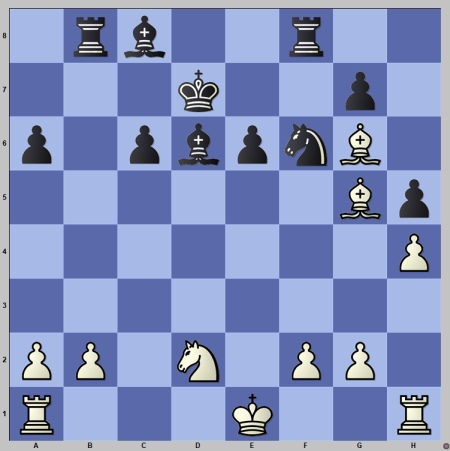
Rapport grabbed the b2-pawn and pounced on White's king with all his pieces except for the light-squared bishop.
However, Radjabov did not lose his cool and defended with precision. After tactical exchanges on the kingside, Black emerged two pawns up, but White had sufficient compensation in the form of two active rooks. More importantly, White had a dominating dark-squared bishop while his black light-squared opposite was very passive on c8.
Both sides didn't play very precisely, but Rapport's mistakes were greater, despite White's being in time trouble with about five minutes on the clock.
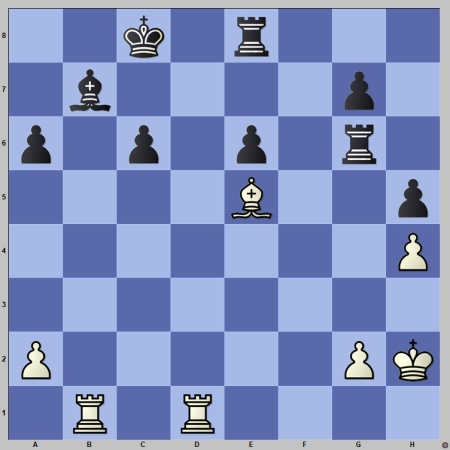
Instead of activating his bishop with 36…c5 or preventing White's main idea with 36…Rf8, Rapport greedily went for White's h4 pawn - 36...Rg4, underestimating Radjabov's threats. White reacted with two precise moves and got a decisive advantage but failed to finish the job.
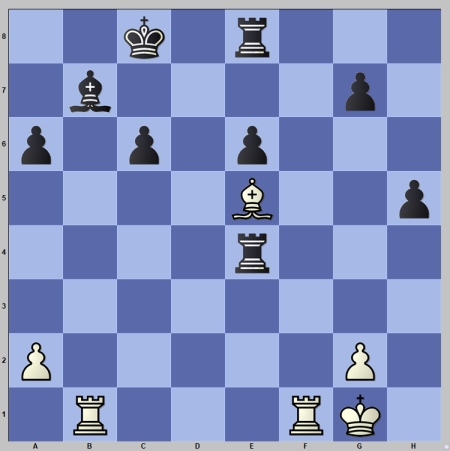
In this position, in time trouble, Radjabov played 39.Rf7, immediately dropping the advantage, whereas after 37.Bh2 Black simply had no way out.
Rapport jumped at the opportunity to get rid of the extremely dangerous e5 bishop and the opponents soon agreed to a draw as White delivered a perpetual along the seventh rank.

Alireza Firouzja vs Fabiano Caruana: A demise of one’s own making
The last time Firouzja and Caruana sat across each other in a big tournament was in Romania, where they drew. However, their penultimate duel was more memorable: in October last year in Riga, at the Grand Swiss, where Firouzja convincingly stamped his card for the Candidates, it was Caruana who delivered him the only defeat in the tournament. Firouzja had a score to settle…
The tournament in Madrid so far is a tale of two worlds for Firouzja and Caruana. While the veteran (four-time participant and one-time winner) of the Candidates, Caruana is playing very well and with great success, it is a very different story for the young French lion. The 19-year-old Firouzja, who spent the greater part of this year away from the chess world, getting ready for this event, has been struggling to show what he has prepared. With a loss and four draws, Firouzja, playing as White, had to be at his best and win in this game against Caruana if he wanted to make a breakthrough.

In the Catalan, Firouzja demonstrated his opening preparation, playing 6.Qd3, which is a rare line that left Caruana thinking for a while. It seemed that White could have posed much more problems for Black by playing 11.Nc3 - removing the key d5-knight even at the cost of weakening his pawn structure. However, Alireza opted for a less ambitious 11.Rd1 and Black managed to complete development.
By move 20, things were even - some pawns and light pieces were exchanged with neither party having anything substantial.
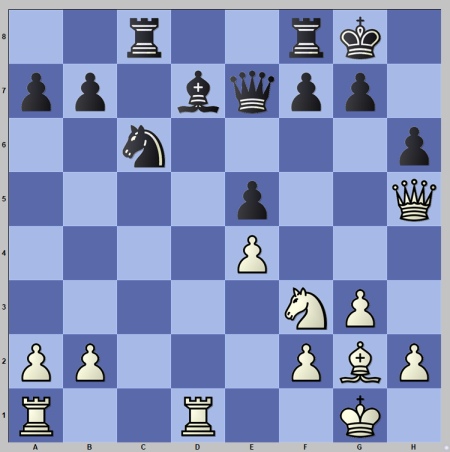
Here, however, Firouzja started to lose control of the position. He sacrificed an exchange on d7 - 20.Rxd7, hoping to regain it immediately after 21...Qxd7 22.Bh3. However, after brilliant 21…f5!, it turned out that White was an exchange down for good.
Firouzja was trying to complicate things, but Caruana was simply merciless - combining snatching White's pawns with precise calculation, he was forcing Alireza on the ropes.
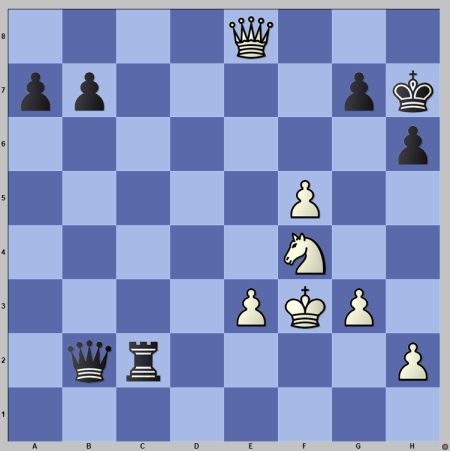
An exchange down and with Black securing two runners on the a and b-files, Firouzja was pinning his last hopes on the desperate push forward with all his remaining pieces, which were on the queenside. But moving forward allowed Black to crawl into the back ranks, and set devastating threats behind White's back.
After staring at the board for a while, Firouzja was coming to terms with another demise. Similar to the game he lost against Nepomniachtchi, it was his overstretched ambition that set him up for defeat.
With two defeats and four draws, Alireza Firouzja is now alone at the bottom of the standings.
Hikaru Nakamura vs Ding Liren: A fair outcome
This was Ding's second game in a row playing with black pieces. He was up against an opponent with whom he is evenly matched.

In the Italian game, Ding repeated the line he played in the second round against Duda. However, the game which developed here was slightly sharper.
The opponents followed the footsteps of Anish Giri and David Anton for a while, but on the move 15, the Chinese GM demonstrated how deep his preparation was by playing 15…Qa7, putting pressure on the d4-pawn (the first line of chess engines). Apparently, this whole Qa7-d5-Ne4 sequence was prepared in his home laboratory.
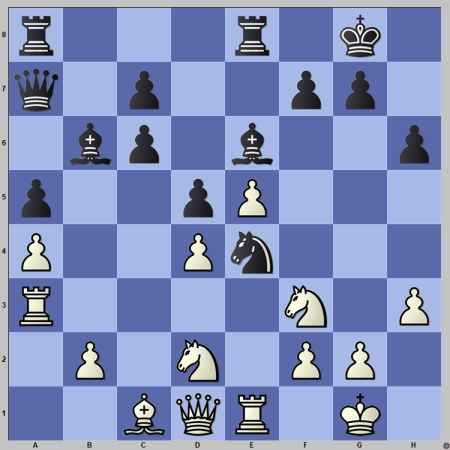
This was the first moment Ding dived into the board, spending some 15 minutes before playing 18...Bf5. Nakamura instantly replied with the strongest - 19.Re2 – a sign that this was clearly prepared and that he had analysed this position beforehand.
After Black broke through in the centre with a thematic 20…c5, the game progressed with an exchange of minor pieces. The position was even, but Nakamura grabbed a pawn first and then transferred his rook to g3, aiming at Black's king. Black, on the other hand, had merits of his own: a well-placed knight on e6 and a potentially dangerous free-runner on the d-file.
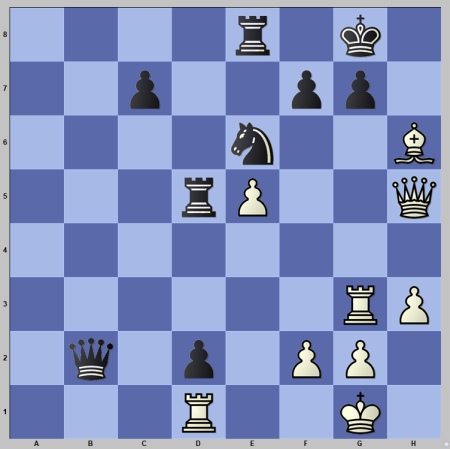
As soon as Black restored material equality, White launched an attack on the kingside 35.Bxg7 Nxg7 36.Rxg7+: but it was only enough for a perpetual, which Nakamura delivered to force a draw.
A fair outcome given the game.
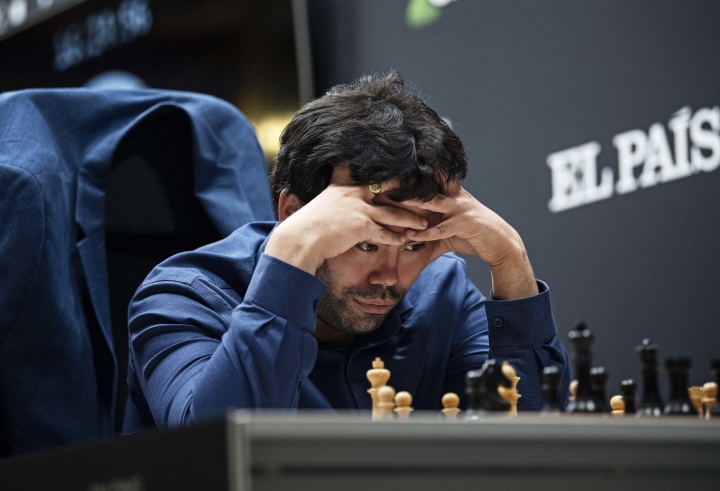
Ian Nepomniachtchi vs Jan-Krzysztof Duda: A big leap forward
This was always going to be a very tough challenge for one of the youngest participants in the Candidates, Jan-Krzysztof Duda (24). He has played a very good tournament thus far, drawing five games in which he demonstrated high strength and skill. He was now up against the tournament leader and former challenger for the world crown, Ian Nepomniachtchi, who was looking for his chance to further separate from the rest of the players.
Nepomniachtchi opened with 1.Nf3, which he has not played in recent times. In the Reti opening, White traded pawns in the centre early on and executed a plan with 9.Ne5 followed by advancing his kingside pawns. Duda had to be careful as his g4-bishop could be potentially trapped.
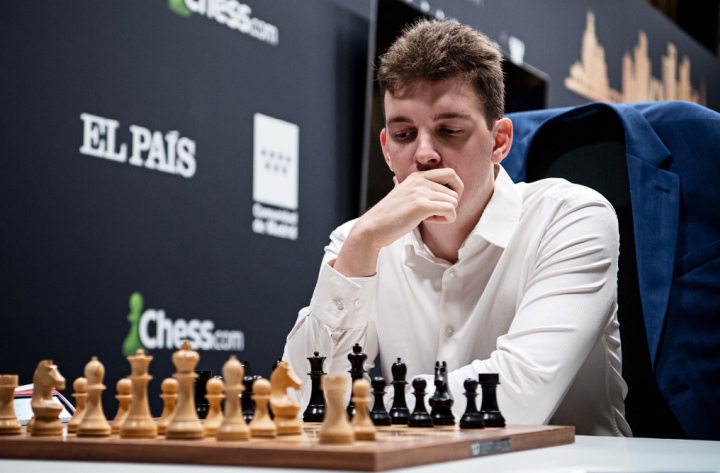
Nepomniachtchi transferred his queen to g3 and marched the f2-g2-h2 pawn chain straight towards the pawn walls of the black king. Black managed to stall White's pawn advancement but after a seemingly solid but inaccurate move 19…Rad8 (19…Bd4 was called for), Nepo set his pawn chain on the kingside in motion.
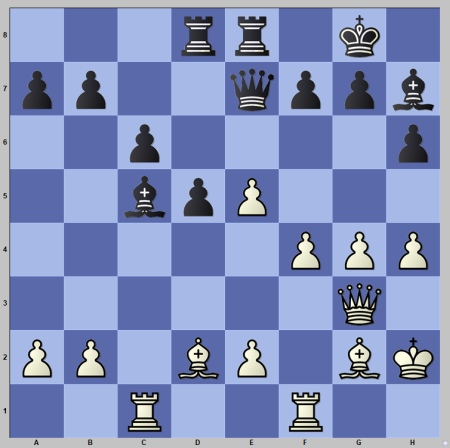
After 20.g5 hxg5 21.hxg5 Bb4 22.Bxb4 Qxb4 Duda decided to give up his light-squared bishop but grab as many opponent's pawns as possible by sending his queen to the queenside.
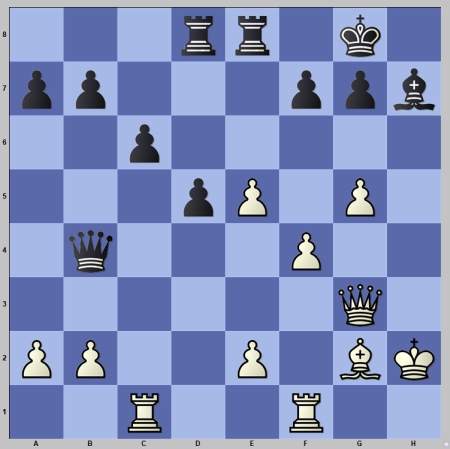
In this position, Nepo decided to play 23.f5, sacrificing the b2 pawn but pushing ahead towards the black king. Sitting on h7, Duda's light-squared bishop was dwarfed to the role of a pawn.
However, after 23…Qxb2 Nepomniachtchi played a somewhat imprecise move 24.e6, missing a better one – 24.Rc3 isolates Black's queen from the kingside with an overwhelming position.
Black implemented his plan and gave up his h7 bishop for a compensation of three pawns, but his fortress was destroyed, and his king was exposed to an assault by White's heavy pieces. By move 28, White recaptured a pawn on b7 and got his rook to Black's seventh rank.
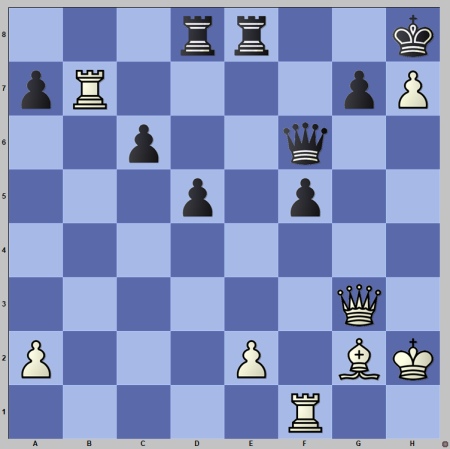
It was an unenviable position for Black, but he could have put some resistance by defending his f5-pawn. Duda opted for 28…Rxe2 and after 29.Rxf5! Qh6+ 30.Kg1 Rxa2? White was in full control.
Nepomniachtchi was confident in his execution: his bishop and queen were excellently coordinated in defending the white king, while at the same time he was posing various threats to the black monarch.
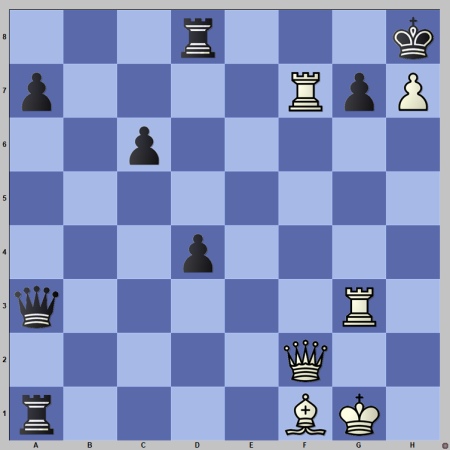
In a desperate position (above), with five minutes to reach the first time control, Duda conceded his first defeat in the tournament.
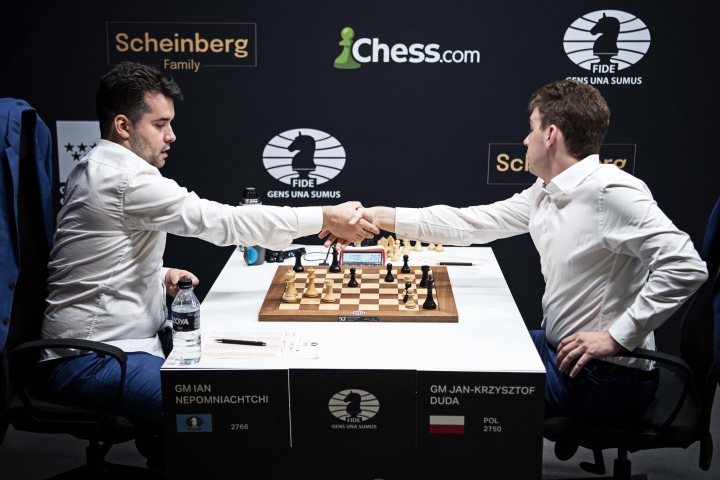
Friday the 24th of June is a rest day.
Round seven of the Candidates starts on Saturday the 25th of June at 3 PM CEST at the Palacio de Santona in Madrid.
The pairings of round seven are as follows:
Richard Rapport vs Ian Nepomniachtchi
Jan-Krzysztof Duda vs Hikaru Nakamura
Ding Liren vs Alireza Firouzja
Fabiano Caruana vs Teimour Radjabov
For more information please visit: https://candidates.fide.com/
Text: Milan Dinic
Photos: FIDE / Stev Bonhage
2022 Candidates Tournament Partners:




